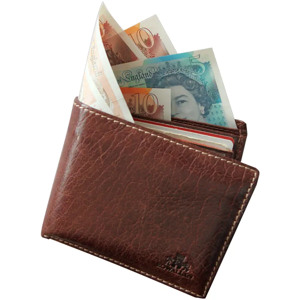Tavex uses cookies to ensure website functionality and improve your user experience. Collecting data from cookies helps us provide the best experience for you, keeps your account secure and allows us to personalise advert content. You can find out more in our cookie policy.
Please select what cookies you allow us to use
Cookies are small files of letters and digits downloaded and saved on your computer or another device (for instance, a mobile phone, a tablet) and saved in your browser while you visit a website. They can be used to track the pages you visit on the website, save the information you enter or remember your preferences such as language settings as long as you’re browsing the website.
| Cookie name | Cookie description | Cookie duration |
|---|---|---|
| tavex_cookie_consent | Stores cookie consent options selected | 60 weeks |
| tavex_customer | Tavex customer ID | 30 days |
| wp-wpml_current_language | Stores selected language | 1 day |
| AWSALB | AWS ALB sticky session cookie | 6 days |
| AWSALBCORS | AWS ALB sticky session cookie | 6 days |
| NO_CACHE | Used to disable page caching | 1 day |
| PHPSESSID | Identifier for PHP session | Session |
| latest_news | Helps to keep notifications relevant by storing the latest news shown | 29 days |
| latest_news_flash | Helps to keep notifications relevant by storing the latest news shown | 29 days |
| tavex_recently_viewed_products | List of recently viewed products | 1 day |
| tavex_compare_amount | Number of items in product comparison view | 1 day |
| Cookie name | Cookie description | Cookie duration |
|---|---|---|
| chart-widget-tab-*-*-* | Remembers last chart options (i.e currency, time period, etc) | 29 days |
| archive_layout | Stores selected product layout on category pages | 1 day |
| Cookie name | Cookie description | Cookie duration |
|---|---|---|
| cartstack.com-* | Used for tracking abandoned shopping carts | 1 year |
| _omappvp | Used by OptinMonster for determining new vs. returning visitors. Expires in 11 years | 11 years |
| _omappvs | Used by OptinMonster for determining when a new visitor becomes a returning visitor | Session |
| om* | Used by OptinMonster to track interactions with campaigns | Persistent |
| Cookie name | Cookie description | Cookie duration |
|---|---|---|
| _ga | Used to distinguish users | 2 years |
| _gid | Used to distinguish users | 24 hours |
| _ga_* | Used to persist session state | 2 years |
| _gac_* | Contains campaign related information | 90 days |
| _gat_gtag_* | Used to throttle request rate | 1 minute |
| _fbc | Facebook advertisement cookie | 2 years |
| _fbp | Facebook cookie for distinguishing unique users | 2 years |
The Drawbacks and Benefits of a Cashless Society

The Global Shift Towards Cashless Transactions
In an era marked by rapid technological advances, the concept of a cashless society is becoming more achievable.
The covid-19 pandemic gave a shock to the trend towards cash transactions, but the post-Covid trend indicates that it is here to stay. In comparison to 2021, the percentage of physical payments decreased further, falling to 14% in 2022 from 15%.
This transformation is gaining momentum globally, indicating a potential irreversible trend towards cashlessness and cash payments.
Advantages of Embracing a Cashless Society

Enhanced Convenience and Security
One of the most significant benefits of a cashless society is the convenience it offers
Digital transactions through bank accounts eliminate the need to carry physical cash, thus reducing the risk associated with theft or loss.
Research indicates that places like Missouri have seen a decline in crime rates by 9.8% following the adoption of Electronic Benefit Transfer (EBT) cards, showcasing the safety benefits of reducing cash circulation.
Streamlined Transactions and Global Connectivity
The absence of cash simplifies many aspects of financial transactions, especially internationally. Travellers no longer need to worry about currency exchange rates or carrying local currency, as digital platforms can handle all transactions seamlessly.
This ease of transacting across borders promotes a more interconnected global economy allowing for more cashless payments.
The Challenges of a Cash-Free Future

Privacy Concerns and Data Security
Despite its advantages, the shift to digital transactions raises significant privacy concerns across the financial market. The digitisation of card payments means that banks and payment providers often have access to extensive consumer data, which can be vulnerable to breaches or misuse.
Reports have emerged of transaction data being sold to third parties, such as online advertisers, without consumer consent causing high levels of concern.
Dependence on Technology and Financial Stability
The reliability of digital platforms is another concern, as they depend on continuous technological and electrical infrastructure.
Outages, system failures, or cyberattacks could leave individuals unable to access their funds
This poses a risk to financial stability and personal convenience.
Economic Implications of Digital Transactions

The transition to a cashless society might also lead to broader economic impacts, such as the potential for negative interest rates to directly affect consumers.
With digital transactions, banks might pass on the costs of negative interest rates more directly to customers in the long term, a scenario less feasible when consumers can withdraw cash to avoid bank fees.
Case Study: India’s Experiment with Cashlessness 🇮🇳
In November 2016, India attempted a bold move towards a cashless economy by demonetising its 500 and 1000 rupee notes, which constituted approximately 86% of its cash in circulation.
This decision aimed to curb illegal cash holdings and promote digital transactions and money transfers. However, the move faced significant challenges, and by the end of 2017, cash usage had returned to previous levels, illustrating the complexities of transitioning to a cashless economy.
Conclusion
As the world leans more towards digital transactions, understanding the full spectrum of impacts – both positive and negative – is crucial.
Whether it’s the enhanced convenience and safety or the privacy and dependency concerns, the shift towards a cashless society promises significant changes in how we handle money in the short term and long term.
As consumers and policymakers alike navigate this evolving landscape, the experiences of nations like Sweden and India offer valuable insights into the potential future of our financial systems.

















